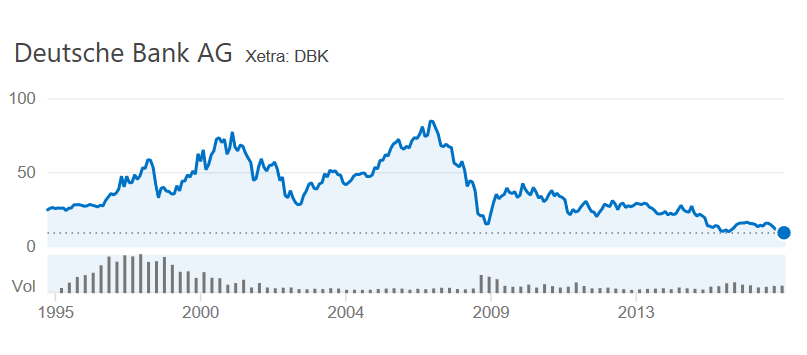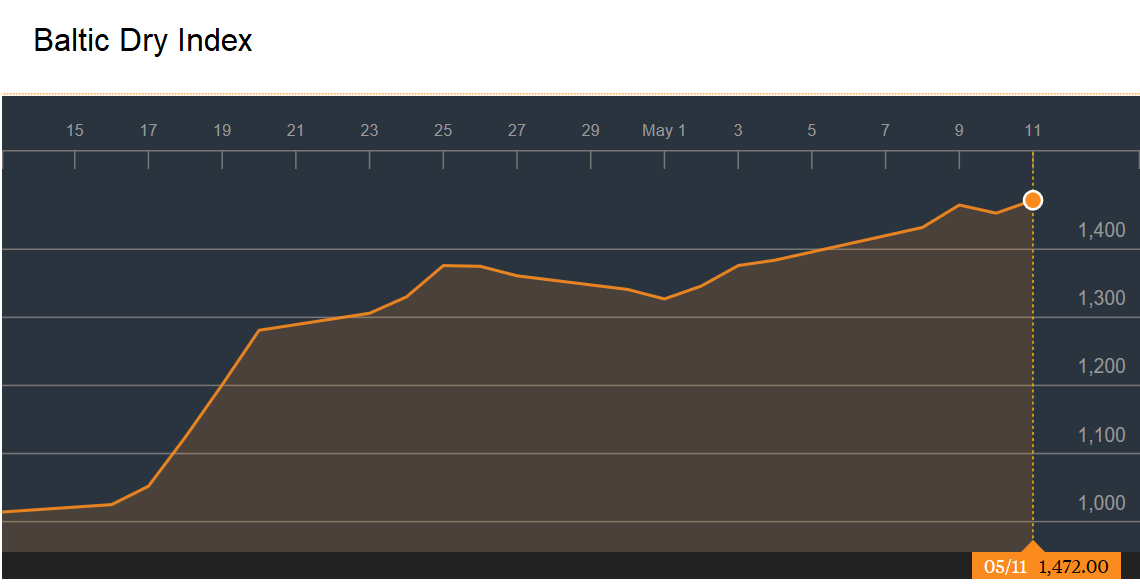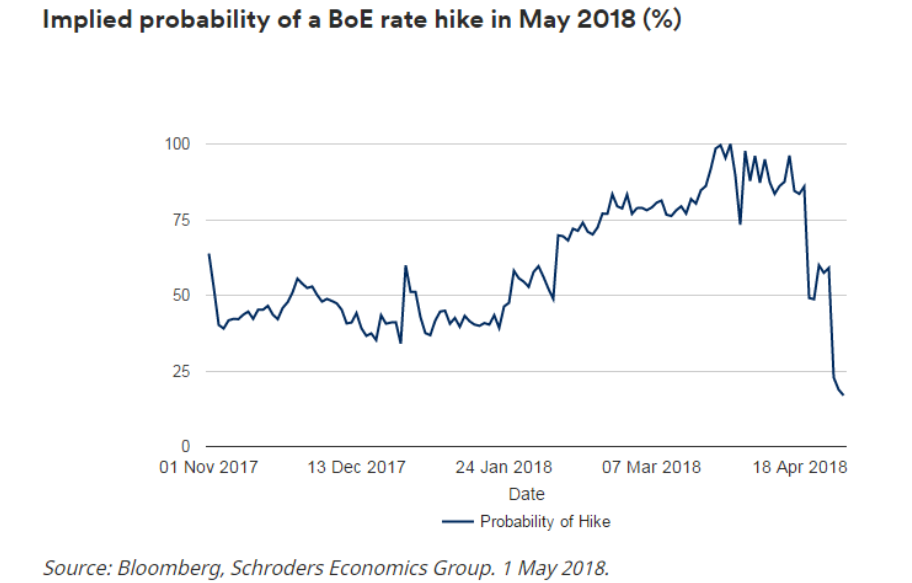Deutsche Bank
Apparently, the new CEO of Deutsche Bank is “sick and tired of bad news”. Here are some recent events,
April 8: Christian Sewing is appointed new CEO of Deutsche Bank.
April 15: The European Central Bank (ECB) asks Deutsche Bank to estimate the cost of winding down its investment bank.
Thursday, May 31: The Financial Times reported that Deutsche Bank’s US subsidiary was added to the Federal Deposit Insurance Corporation’s list of “problem banks,” or those with weaknesses that threaten their financial survival.
Thursday, May 31: Deutsche Bank shares hit an all-time low.
Friday, June 1: Standard & Poor’s cut Deutsche Bank’s credit rating from A- to BBB+. The ratings agency also questioned whether Deutsche Bank’s new CEO Christian Sewing would be able to return the bank to profit.
Friday, June 1: Deutsche Bank is going to face new cartel and criminal charges in Australia.
Friday, June 1: Deutsche Bank shares hit new all-time low.

Continue reading “Weekly Overview: Deutsche Bank; Italy; US Unemployment”

